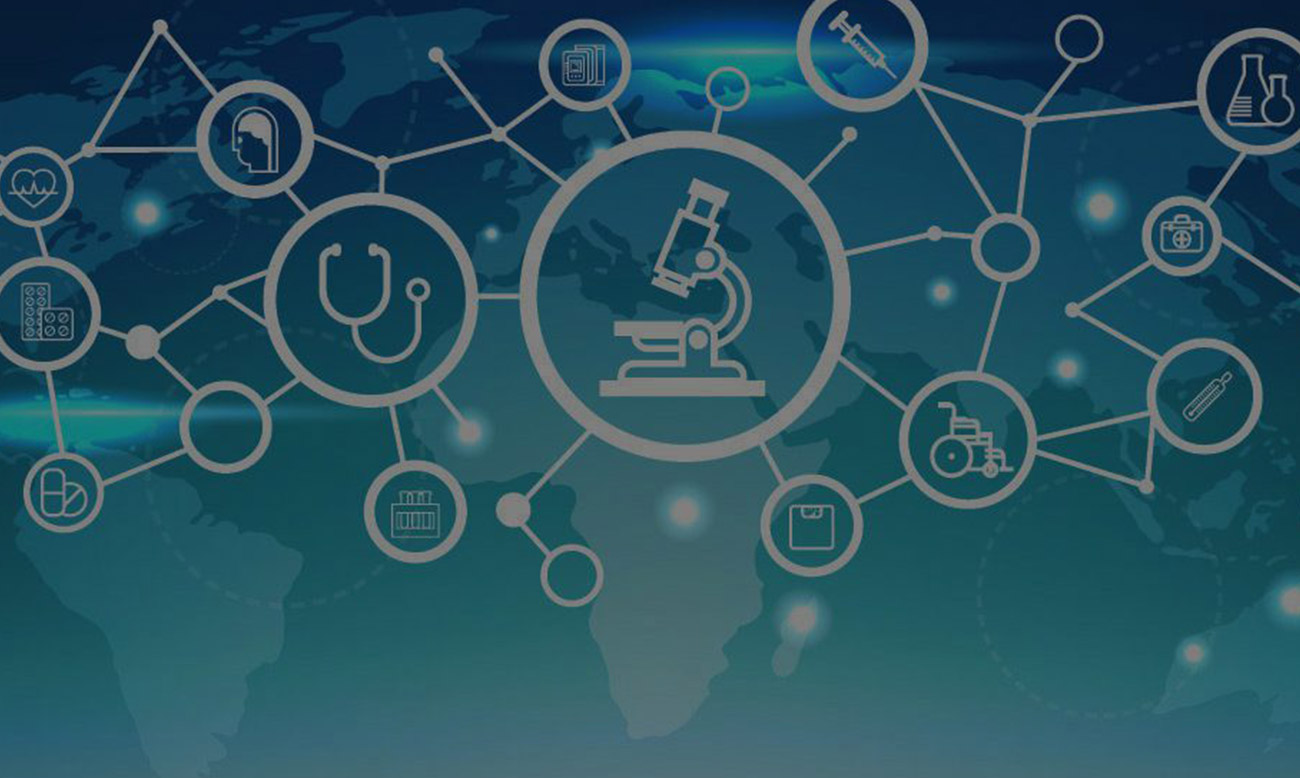You need to log in to post to this user's Wall.
-
Shubh Singh and
 Dr. Gurbir Singh are now connected 5 years, 4 months ago
Dr. Gurbir Singh are now connected 5 years, 4 months ago -
Shubh Singh and
 Sonia Ahuja are now connected 5 years, 4 months ago
Sonia Ahuja are now connected 5 years, 4 months ago -
Shubh Singh and
Razia Rehmani are now connected 5 years, 4 months ago
-
Shubh Singh wrote a new post, A Fresh Approach to providing Universal Electronic Health Records 5 years, 4 months ago
Collecting, securing, managing and making effective use of health information remains a problem globally. While this applies to every aspect of healthcare, including drug production, clinical research and trials, […]

-
Excellent summary and points
-
Thanks Dr. Katz! We are going to publish information on every aspect of UNHIN in the coming weeks.
-
Looking forward to it!!
-
-
-
Agree !
-
Your are so right about how difficult it is for patients to get a hold of their own records. Under the current systems now operating, although HIPAA states that a patient owns their health information, I have often seen resistance from physicians to allow patients to see their test results until they have had a chance to review them and present them personally to the patient (which may take some time). They claim they want to avoid patient’s misunderstanding results or to prevent them from unnecessary worry or even panic. I have also personally been told more than once by a lab or radiology office that they are not allowed to give me my results. They can only send them to the physician.
After reading about this system it would seem that a patient would be able to view their test results as soon as they are complete. Have any physicians voiced an objection to this? -
Thanks for your comments. I’m glad you brought this up as it is a very important point to discuss. It is not necessary that a patient will be able to immediately view their test results. This will be configurable, and may change for different legal jurisdictions and also for different physicians who can setup their preferences. For example, a physician would be able to set a preference that test reports that they order should not be released to the patient until after they have reviewed and approved them, in which case the patient wouldn’t see the test reports in their account until the physician has given a go ahead.
We want due process to be followed, but we want patients to have easy access to their test reports once the process has been completed, and also that the test reports shouldn’t get lost.
In my personal experience in the New York City area, I haven’t had to visit any large health system because I haven’t had any health issue requiring that so far, so I have visited small practices over the years. What I can tell you is that I don’t have a single one of my test reports with me over the years. This is because I had to explicitly make phone calls and ask for the test reports which I never got around to doing, or I was given a paper copy which I simply lost after sometime. I have 2 children, and it would be good to have my wife’s reports, who has interacted with a large health system for childbirth, but again its the same thing, we don’t have a single report on hand, and its also pretty much the same for our two children. It would have been great if we had a secure, electronic health account where our reports would get accumulated without us having to think about it. The physician would have discussed these reports with us, and they would automatically make it to our health account and get archived for posterity, so that if we need to find them we could.
Regarding objections from physicians, we have been taking a global perspective on this, and we find that this varies from country to country, and perhaps even state to state. Several states in USA consider health records to belong to physicians (I will look up a reference for this and post it shortly), so physicians are entitled to hold them back, though in the prevalent information age there is a lot of stress on data and how people should own their data, so it doesn’t feel logical or intuitive. Several physicians we have talked with in USA do say that they feel that patients should own their information and this will aid in patient-centric care. That of course doesn’t mean that reports and other information should get directly released to patients, these should be duly reviewed by physicians. I still remember when we were having our first child, a heart specialist we went to see took me for a walk to explain to me how they have found a serious condition with my wife, and that I should not panic and try to be as supportive as possible, when the lab technician or a nurse informed him that they had sent him the wrong report! So it turns out everything was normal, I’m really glad that the report wasn’t delivered directly to me and multiple people checked it!
Looking across the globe at some of the other places where we are working, in Trinidad and Tobago, the State (i.e. the Government) owns health records, so patients need to ask for their information under the freedom of information act. Even if physicians agree that information should be provided to patients, the system will need to be structured so that due approvals and obtained before providing their records to them. In India, most hospitals actually hand over all health record information to patients, including physician notes, test reports, etc. in a paper health record file that the patient needs to keep. So physicians in these hospitals have no problem with giving patients their electronic health records. That’s what they do right now in paper form! Modern hospitals in large cities in India a changing that with their enterprise based health record systems. So if you talk to physicians from these hospitals, they do raise similar concerns, but we have found them to be a minority in our research so far.
In any case, as I explained above, the idea is that the UNHIN will be flexible and configurable by jurisdiction and physician so that due process can be followed. The main intent is that after following due process patients should get their test results and other information promptly, without having to make phone calls, exchanging emails or faxes, or standing in queues asking for permission. This health information should automatically be updated in their accounts and should never get lost so that they can look it up as and when required, and so can physicians whom they visit in the future (with due consent and authorization from the patients of course).
-
Thank you for that wealth of information! Although I personally find it frustrating at times, it makes a lot of sense that the physician can control the release of information, but eventually all your records will be in one easily accessible place. That is certainly a great benefit. Having all you health care providers being able to get the “whole picture” will allow for a more comprehensive, patient centered care, instead of each specialty working without your complete health information.
-
-
Shubh Singh and
Nitish Patidar are now connected 5 years, 4 months ago
-
Shubh Singh and
 Rowland Lovingood are now connected 5 years, 4 months ago
Rowland Lovingood are now connected 5 years, 4 months ago -
Shubh Singh and
 Jeffrey Chyau are now connected 5 years, 4 months ago
Jeffrey Chyau are now connected 5 years, 4 months ago -
Shubh Singh and
 Akshay Kumar are now connected 5 years, 4 months ago
Akshay Kumar are now connected 5 years, 4 months ago -
Shubh Singh and
Jonathan Guenoun are now connected 5 years, 4 months ago
-
Shubh Singh and
 Shivam Garg are now connected 5 years, 4 months ago
Shivam Garg are now connected 5 years, 4 months ago -
Shubh Singh and
 Divya Chaudhary are now connected 5 years, 4 months ago
Divya Chaudhary are now connected 5 years, 4 months ago -
Shubh Singh and
 Sukriti Mittal are now connected 5 years, 4 months ago
Sukriti Mittal are now connected 5 years, 4 months ago -
Shubh Singh and
Mridul Mahajan are now connected 5 years, 4 months ago
-
Shubh Singh and
Akash Khurana are now connected 5 years, 4 months ago
-
Shubh Singh replied to the topic Establishing the Universal Health Information Network (UNHIN) in the forum
 Universal Health Information Network (UNHIN) 5 years, 4 months ago
Universal Health Information Network (UNHIN) 5 years, 4 months agoGreat question. The penetration of mobile devices and data networks have actually increased a lot in the last few years so that they are already used very widely. This is not just true in India but also in other countries. Additionally, for an initiative such as UNHIN we are designing for the future, and the penetration of mobile technology will…[Read more]
-
Shubh Singh replied to the topic Establishing the Universal Health Information Network (UNHIN) in the forum
 Universal Health Information Network (UNHIN) 5 years, 4 months ago
Universal Health Information Network (UNHIN) 5 years, 4 months agoThe Blockchain will confirm healthcare transactions and make sure that the report is indeed provided by a physician or a lab that has conducted the test. What this means is that it will not be possible for someone to fake a physician’s identity and put data into a patient’s record. If a lab or physician fakes a result, there will be community…[Read more]
-
Shubh Singh and
 Radhika Goel are now connected 5 years, 4 months ago
Radhika Goel are now connected 5 years, 4 months ago -
Shubh Singh and
 Hirshel Kahn are now connected 5 years, 4 months ago
Hirshel Kahn are now connected 5 years, 4 months ago -
Shubh Singh and
 Rupam are now connected 5 years, 4 months ago
Rupam are now connected 5 years, 4 months ago -
Shubh Singh posted an update 5 years, 4 months ago
Some of us are attending the Digital Medicine Conference in NYC tomorrow. Use this link to get a discount:
https://www.digitalmedicineconference.com/page/1349215/register?promo=tb1221463-3655
Digital Medicine ConferenceThe call for evidence in digital medicine is getting louder and the movement is gaining momentum. Join NODE Health for the second annual Digital Medicine Conference where we will convene the leaders driving the movement to bring the rigor of evidence-based Read more...
- Load More

